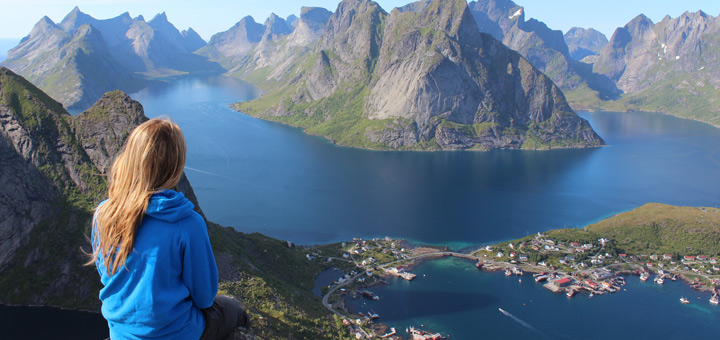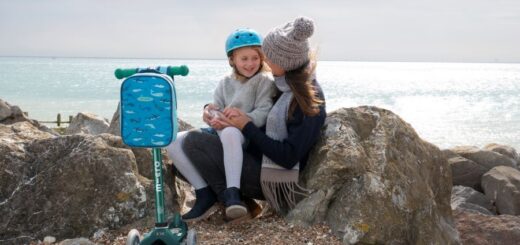
Ethical travel – is it possible?
Ethical travel and holidays – is there such a thing? For many years I’ve been wanting to try and lessen my environmental and wildlife impact, while wanting to see and experience our world and different cultures. Can I do this and minimise my impact at all? Is it possible to have an eco-friendly holiday? I’ve got a few tips and things to consider that will help you plan your next break.

What matters to you
This depends on your personal ethics, and what’s important to you. Reducing your carbon footprint, being eco-friendly, supporting fair trade or stopping exploitation of animals are all part of it, and you can find a way to travel with an ethical mindset. If you need to travel for work, you can ask what your employer is doing to help too.
Where to travel
My first consideration when planning some time away is, can we go somewhere local? Where I live in the north east of England, we are incredibly blessed with stunning national parks nearby, beautiful coastline, and close proximity to the Lake District and the beauty of Scotland, not to mention the rest of the UK – we really are very lucky with our landscape, history, monuments, and wildlife.
Twice a year my boyfriend and I take a stargazing camping break in Kielder Forest. Little over an hour from Newcastle-upon-Tyne, it’s a beautiful place now frequented by red kites, red squirrels and other wild animals. It’s easy to walk around and has lovely trails including a nice short hike up to the incredible Kielder Observatory, with public artworks along the way. It just shows that you can have a lovely, relaxing break close to home.
If you want to visit somewhere further afield you may be considering the impact of driving or flying so far. It may be possible for you to drive from UK to Germany, but that’s not an option if you want to see relatives in Australia! Which brings me onto…
Method of transport
This is probably the first, and possibly only, thing that people associate with ethical travel. In the UK, 23% of our emissions are due to transport (with energy supply being the biggest emissions). Jet airliners are now more efficient than their older models, but air travel still accounts for up to 9% of global emissions. If you need to fly, look at the environmental policies of the airlines, ethical travel reviews, and you can also look at options like carbon offset (detailed later in this article). Try to minimise the number of flights (direct flights for example), fly during the day (it is believed that flights taken at night have a greater impact), and pack light.
With a hybrid vehicle we are now also able to drive to France and the continent (from the UK) without as many emissions as a regular car, so it’s worth totalling up your estimated emissions (it doesn’t take long) and deciding what’s the best method for you. Trains are now an easy option from the UK into Europe, however it’s worth bearing in mind that long train journeys may ramp up those emissions if they’re old, polluting diesel models.
Use your feet! If you’re able, you can cover a lot of ground on holiday by simply using foot power/bikes etc (rollerblades anyone?) instead of hiring a car. For example, cities like San Francisco and Prague are much better experienced by walking around; and San Francisco in fact is highly prohibitive to cars with massively expensive parking, a deliberate local government measure to limit pollution. If you’re out in the countryside, hiking or climbing is a fantastic way to travel – plus you get a bit of exercise and fresh air.
If you really fancy a challenge, one of our locals Mark Allinson – known as Run Geordie Run – is treading his way through the whole of Europe right now as part of his epic 20,000 miles around the world, and all for charity. Now that’s a trip to remember!
Get on your bike. Countries like Holland and Belgium are well known for great cycle paths and a nationwide love of cycling, which means you can easily have a pedal-powered break and see the sights the ethical travel way. Maybe don’t try that on San Francisco’s hills though, unless you have thighs of steel!
What to pack
Every extra kg in a car, train and airliner uses extra fuel. Travel light and you’ll have less to pack away again (yay!) and make it easier for yourself to drag around. You don’t need that 4th pair of shoes! I’ve found that I pack a lot less these days, knowing that I likely won’t wear it anyway.
When it comes to clothing, not buying new clothes for a trip (do you really need another bikini?) obviously makes a difference. If you really need something, try recycling old clothes or possibly a charity shop bargain find. Eco-friendly brands like Thought (formerly Braintree Clothing) use bamboo (an eco fibre you’ll love – easy to wash, dry and pack!) while reducing the impact of high street clothing. Fairtrade, FSC certified and sustainable Ethletic makes the perfect footwear too.
Skincare and biodegradable products
If you’ll be ocean/lake/reef swimming or diving, it’s worth considering that many sunscreens aren’t biodegradable, and can pose a risk to marine life. Take care of your skin in the sun with eco-friendly sunscreens. Reduce your waste and don’t take extra plastic bottles, especially if you’re going to a country that doesn’t recycle as much. Keep an eye out for eco-friendly cleaning and dish washing products if you’re self catering, or take a little bottle of your own to be sure your cleaning doesn’t end up impacting rivers and marine life.
Be water conscious
Ditch the wasteful single-use water bottles and take a reusable one with you. We have handy filter bottles from Brita and Bobble, and hardy reusables from Glugg or Loooqs.
If you’ll be travelling somewhere that you’re advised not to drink the water, or somewhere potentially dangerous, there are great solutions out there like the Lifesaver travel bottle that can filter all the nasties out. All of these allow you to drink without the impact of buying bottles of imported mineral water.
Eat and support local
Instead of eating food imported from the other side of the world while you’re away, try local! You’ll experience authentic recipes and often great food at the source. You can also support local craftspeople and seek out environmentally-friendly products if you want gifts to bring home – another facet of ethical travel that can benefit others. Tourist shops and resorts are often packed with mass produced trinkets and cheap gifts produced at the other side of the globe. Go off the beaten path and you can find local fabrics, jewellery, crafts or art!
Carbon offset
Carbon offset is the purchase of ‘credits’ which offset the impact of your activity, by planting trees or investing in environmentally positive projects or renewable energy. There are critics of carbon offset schemes, claiming it doesn’t reduce people’s usage and simply removes their ‘guilt’. However, many airlines and booking agents allow you to add on a carbon offset charge which calculates the emissions of the journey. At Ethical Superstore we actually allow you to carbon offset the delivery of your orders too, with Trees for Life who plant trees in the Caledonian forest in the UK.
Animal/wildlife friendly
You can make your travel a positive thing in other ways, by supporting Fairtrade companies that help local workers and support their communities, and also by making wildlife friendly choices. Check out Move the World (formerly WSPA) campaign for ending performance. Many animal ‘experiences’ like riding an elephant or posing with a tiger cub hides years of cruelty inflicted behind the scenes – let these companies know what you think, and help to end it by voting with your wallet and refusing to support it. Also, whether you agree with zoos here or not, be aware that welfare standards of those abroad can be shockingly low – is your money supporting this? Very recently the famous Tiger Temple in Thailand was raided by authorities and the animals confiscated, due to illegal trafficking and animal abuse. You can find (and even volunteer with) amazing welfare charities like Animals Asia who are making huge changes in Vietnam and China ending the cruel bear bile industry, and many fantastic animal charities doing great work.
As well as considering these things when I travel, I’ve recently decided to find local charities to make a donation to. Whether it’s something close to your heart (local animal rescue?) or a pressing issue in a particular country (Disasters Emergency Committee), you can always find somewhere deserving of money, time or product donations.
What are your ethical travel tips? Have you considered ethical or environmentally friendly travel before, or found it an issue?
–
References: ‘Reduce your carbon footprint‘
Move the World
UK Government 2014 Final Emissions Statistical Summary Infographic (PDF format)



